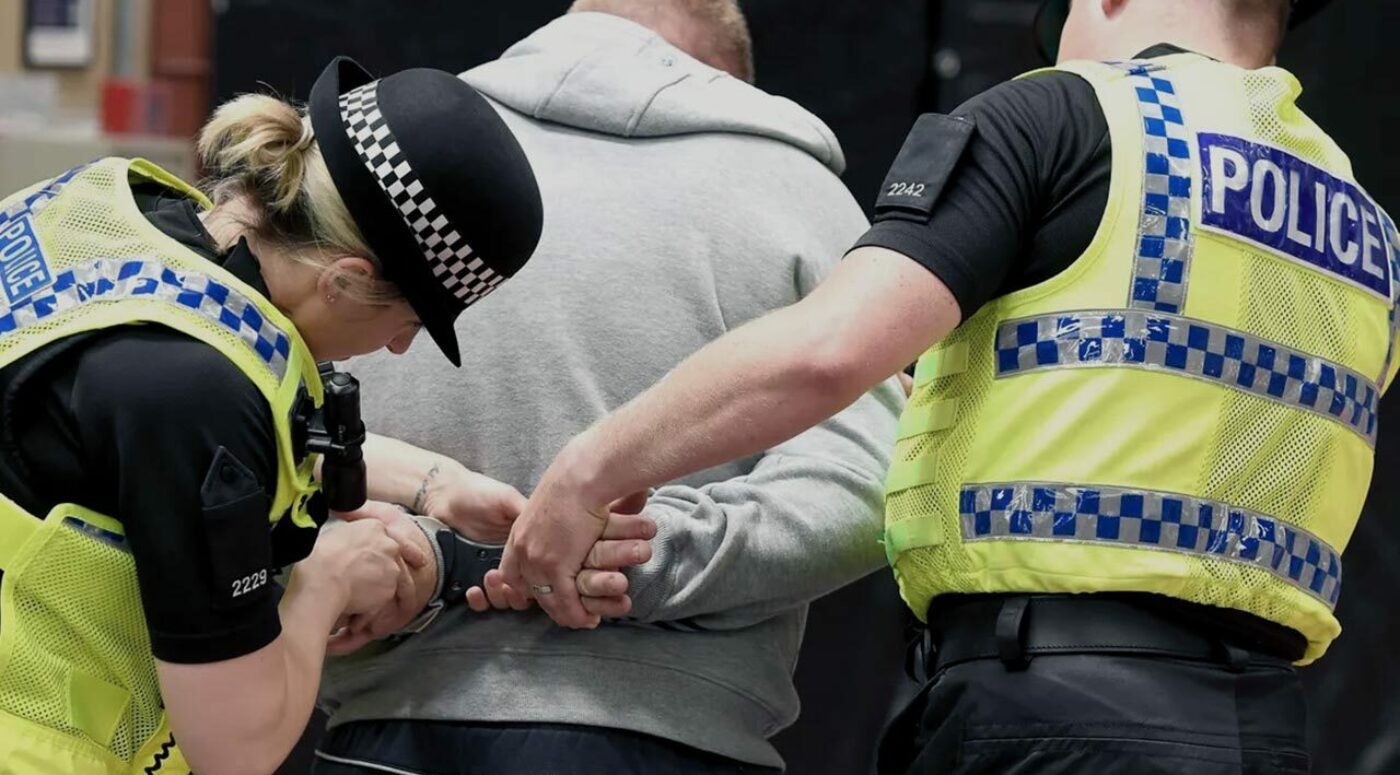

If you are facing charges for affray in the UK, one of the main things you’re probably thinking about is what sentence you might face if you are found guilty. If that’s the case, you are not alone. Thousands of people are charged with affray in the UK every year. While it is a common offence, however, it should not be taken lightly. In this article, we look at what constitutes affray and answer some of the most common questions we get about the offence.
What is the offence of affray in the UK?
Affray is an offence under Section 3 of the Public Order Act 1986. It involves the use or threat of violence against another person in a public place, which causes other people to fear for their safety. The offence can be committed by an individual or by a group. Group affray is deemed to occur where two or more people are fighting or threatening to fight in a public place, and their behaviour is causing, or is likely to cause, alarm, harassment, or distress to other people who are present.
Here are a few examples of what might constitute ‘affray’ under this provision:
- Someone loudly shouting at passers-by, trying to incite a fight and acting in a violent or otherwise aggressive manner, causing distress to nearby people.
- A group of people threatening each other in a crowded shopping centre, causing distress to other shoppers.
- Two people having a heated argument that escalates into a physical fight in a bar or nightclub, causing alarm to other patrons.
- A group of friends play-fighting with each other at a concert, causing panic among other attendees.
It’s worth noting that for an affray to be committed, the behaviour can take place in a public or private place. Note that engaging in a fight or threatening to fight with someone else, even in a public place, may not necessarily constitute affray if it does not cause any distress to others (for example, if you are so drunk that you can barely stand up, let alone fight someone or potentially harm others).
Is affray a serious offence in the UK?
Yes. Affray is considered a serious offence in the UK. As we explain later, an offence under Section 3 of the Public Order Act 1986 carries a maximum sentence of three years’ imprisonment. Other potential penalties may include a fine, community service, or probation.
The sentence you receive if found guilty will depend on the severity of the behaviour, which is determined by the culpability or blameworthiness of the offender and the level of harm involved.
Is affray civil or criminal?
Affray is a criminal offence. If you are charged with affray, you will face a criminal prosecution and, if found guilty, you will be convicted and sentenced.
Note, however, that someone may sue you for the behaviour that led to the criminal affray charge, and if that is the case, that is a civil claim. For example, if you work at a restaurant and get in a fight with a customer, you may be arrested by the police for the criminal offence of affray and separately face a civil suit from your employer for breach of contract or damages from any harm caused to the property.
Can magistrates deal with affray?
Affray is a triable either way offence, which means that it can be dealt with in the Magistrates’ Court or the Crown Court. In most cases, the decision is made by a judge based on the seriousness of the offence and other factors, such as criminal history.
What is the sentence for affray?
The sentence for affray depends on whether you are tried in the Magistrates’ Court or in the Crown Court. If you are tried in the Magistrates’ Court, you may face a sentence of up to six months in prison and/or a fine. If you are tried in the Crown Court, the sentence can be more severe, with a maximum sentence of three years’ imprisonment.
These custodial sentences may be combined with other potential penalties, including fines and community service.
Is there a defence for affray?
There are several defences that a person charged with affray under the Public Order Act 1986 may be able to raise to challenge the allegations against them. Some of the general defences that might be available in an affray case include:
- Self-defence: If the accused was acting in self-defence or in the defence of another person, they may be able to argue that their actions were justified and not criminal.
- Necessity: If the accused was faced with a serious and imminent threat and had no other reasonable means of avoiding it, they may be able to argue that their actions were necessary and not criminal.
- Duress: If the accused was threatened with serious harm or death if they did not engage in the behaviour in question, they may be able to raise the defence of duress.
- Mistake of fact: If the accused believed that their actions were necessary or justified, but this belief was based on a mistake of fact, they may be able to argue that they did not have the necessary intent to commit the crime.
- Lack of intent: If the accused did not intend to engage in behaviour that would cause alarm, harassment, or distress to others, they may be able to argue that they did not have the necessary intent to commit the crime of affray.
These are just some of the general defences that may be available in an affray case, and the specific defences that are available to an accused person will depend on the unique circumstances of their case.
What happens if you plead guilty to affray?
If you plead guilty to affray, your sentence will likely be more lenient as you have accepted responsibility for the offence and may show remorse. The exact sentence reduction will still depend on what kind of behaviour took place, but if you plead guilty at the first available opportunity, you may receive up to a one-third reduction.
Can you get a caution for affray?
Yes, it is possible to receive a caution for affray in the UK. A caution is a formal warning issued by the police to someone who has admitted to committing a minor criminal offence. Cautions are typically given to people who are first-time offenders, or to those who have committed relatively minor offences.
To receive a caution for affray, a person must admit to the offence and agree to accept the caution. Cautions are typically offered as an alternative to prosecution and are intended to provide a quick and informal resolution to ‘one-off’ crimes.
Receiving a caution for affray is not the same as being convicted of the offence in court. However, a caution is a formal record of the offence, and it can be taken into account if the person is charged with a similar offence in the future. Cautions can also have other consequences, such as making it more difficult to travel to certain countries or obtain certain types of employment.
How long does a caution for affray last?
Police cautions for affray do not have a fixed expiration date. Cautions are considered to be part of a person’s permanent criminal record, and they can potentially be taken into account if the person is charged with a similar offence in the future.
However, a person can have their caution ‘filtered’ from their criminal record after a certain amount of time has passed. Under the Rehabilitation of Offenders Act 1974, certain types of offences become ‘spent’ after a certain period has passed. This means that they are no longer considered relevant for most purposes, and do not need to be disclosed on most job applications or other forms of background checks.
Due to the multitude of factors that go into a caution (conditions, age, type of offence, etc.) it is best to ask a solicitor about how long your caution will last and whether it will show up on a record.
Where to get more help with an affray offence?
Getting the right legal advice at the right time is just as important for affray as it is for other offences. The earlier you find a reputable criminal defence solicitor to walk you through the process, the better. The team at Stuart Miller Solicitors has decades’ worth of combined experience in this field and will be able to help you navigate the choppy waters of the criminal justice system. For a free, no obligation consultation, get in touch with our team today.
OUR COMMITMENTS TO YOU:
-
Responsive
A legal expert will consult you within 24 hours of making an enquiry.
-
Empathetic
We will always treat you with trust, understanding and respect.
-
Specialised
Your case will be handled by an expert who specialises in your type of offence.
-
Proactive
We will take early action to end proceedings as soon as it is practically and legally possible to do so.
-
Engaged
You will be kept updated on your case at all times. We will provide a named contact available to answer your questions.
-
Caring
We understand this is a difficult and stressful time for you and your family. Our team will support you every step of the way.
-
Tenacious
We will never give up on your case. We fight tirelessly to get you the best possible outcome.

